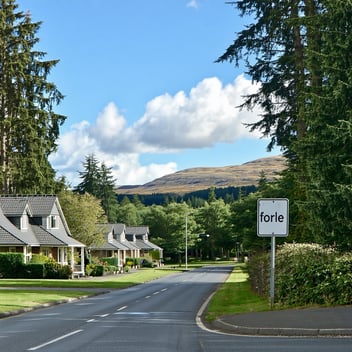Struggling to Sell? Alternative Ways to Offload or Repurpose Your Land
Owning a piece of land that’s tough to sell can feel like a never-ending headache. Maybe it’s unbuildable, stuck with zoning restrictions, or just sitting in an area with low demand. Whatever the reason, you’re probably wondering—what can I do with it?
Here’s the thing: holding onto land isn’t free. Property taxes, maintenance costs, and market ups and downs can affect your potential profit. The longer you wait, the more you could lose in hidden expenses. That’s why finding a creative way to offload or repurpose your land may be a game-changer. Let’s break down some of your best options.
1. Sell “As-Is” (With Pro Tips)
Selling your land "as-is" can still work, but the key is making it appealing to the right buyer. If you market it right, investors, outdoor enthusiasts, or neighbors might be interested.
Best recommendations to sell land as an owner?
- Be upfront about any restrictions or limitations. Buyers appreciate honesty, and it helps avoid future headaches.
- Set a fair price. Land that’s hard to use won’t fetch top dollar, but the right pricing can attract serious buyers.
- Market beyond traditional real estate sites.
2. Lease for Agriculture, Storage, or Events
If selling isn’t in the cards, why not turn your land into an income stream? Leasing is a solid way to make money without giving up ownership.
Ideas for leasing:
- Farming: Small-scale farmers or organic growers might be interested in renting your land for crops or livestock.
- Storage: Open land can be valuable for RV, boat, or heavy equipment storage.
- Event space: Weddings, festivals, and outdoor retreats all need space. If your land has a scenic view, it could be a hidden gem for event planners.
Each of these options has its own pros and cons, but the best part? You keep ownership while generating passive income.
3. Donate for Tax Breaks & Community Good
Sometimes, giving back can be more beneficial than holding onto land you don’t need. Donating your property to a non-profit, conservation group, or local government could come with serious tax advantages.
Why consider donating?
- You might qualify for a tax deduction based on the land’s market value.
- It supports your community, whether through parks, conservation efforts, or community gardens.
- You free yourself from property taxes and maintenance costs.
4. Rezone or Apply for a Variance
Before writing your land off as useless, check if local zoning laws offer some flexibility. Rezoning or applying for a variance could change what’s possible for your property.
Steps to take:
- Research local zoning laws to see what’s allowed.
- Contact your city’s planning department to explore rezoning options.
- Consider working with a land-use attorney or consultant to navigate the process.
If successful, rezoning can open up new selling opportunities and increase your land’s value.
5. Merge with Neighboring Properties
Sometimes, your land alone isn’t valuable—but combined with a neighboring property, it could be a different story.
Why this may work:
- A larger lot may be more attractive to buyers or developers.
- Neighbors might be interested in expanding their own property.
- The combined land could meet zoning requirements that your smaller lot didn’t.
It’s worth reaching out to nearby landowners to see if they’re interested in a deal.
6. Explore Land Swaps & Conservation Easements
If selling isn’t an option, swapping might be. Some landowners or developers might be open to trading properties if it benefits both parties.
Another option? A conservation easement. This allows you to keep ownership while restricting future development—often in exchange for tax benefits.
7. Repurpose for Renewable Energy
If your land has open space and good sunlight or wind conditions, you might be able to lease it for renewable energy projects like solar farms or wind turbines. Some energy companies even pay landowners to host their equipment.
What to check first:
- Does your location get enough sun or wind?
- Are there local incentives for renewable energy use?
- Will an energy company handle installation and maintenance?
This option can turn an underused property into a long-term income stream.
8. Land Banking – Waiting for Appreciation
If you’re not in a rush, holding onto the land as an investment could pay off in the future. Areas with growing populations or planned developments might see land values rise over time.
Best for:
- Land in the path of future growth.
- Owners willing to wait and cover carrying costs.
- Those interested in long-term speculation.
9. Creative Uses: Gardens, Parks, Art Spaces
Sometimes, thinking outside the box can make land valuable. Even if you can’t build, you can still put your land to good use.
Creative ideas:
- Community gardens: Perfect for urban or suburban areas with limited green space.
- Outdoor art installations: Public art projects can attract visitors and funding.
- Private retreat or camping site: Rent your land to campers through platforms online.
These options won’t always generate high profits, but they can add value to your community and increase interest in the land.
10. Owner Financing to Attract Buyers
If traditional selling methods aren’t working, consider offering owner financing. This means you act as the lender, allowing buyers to pay in installments.
Why it may work:
- Makes buying easier for those who can’t get a traditional loan.
- You can charge interest, making it a profitable long-term deal.
- Creates a steady income stream rather than a one-time sale.
11. Partner with Developers or Non-Profits
If your land has potential but no immediate buyers, partnering with a developer or non-profit may be a smart move.
Ways to partner:
- Work with developers interested in long-term projects.
- Collaborate with non-profits that need land for community programs.
- Offer a lease-to-own option to increase accessibility.
12. Tax Incentives You Might Be Missing
Don’t forget to check for tax breaks or incentive programs that could benefit you. Some areas offer relief for conservation efforts, farming, or land donations.
Before making any decisions, talk to a tax professional to see what savings you might qualify for.
Just because your land is hard to sell doesn’t mean you’re stuck with it. From selling and leasing to repurposing and partnering, there are plenty of ways to make your land work for you. The key is finding the right approach based on your goals, timeline, and financial situation.
Explore your options, and turn that unused land into an opportunity!
Ready to Sell Your Land with Confidence?
If you’re looking for a trustworthy company that checks all the boxes—experience, transparency, efficiency, and customer satisfaction—UNITY is here for you.
Thinking about how to sell land? UNITY makes it easy to get started with a secure and hassle-free process — and if you want a deeper understanding of how to sell land, we’ve got a complete step-by-step guide ready for you.
Contact us today to get a fair offer for your land and experience the UNITY difference. Let us help you turn your property into new opportunities, quickly and stress-free.
FAQs on Selling, Repurposing, and Maximizing Land Value
What are some alternative ways to sell hard-to-sell land?
You might be able to sell it "as-is" by targeting the right buyers, setting a fair price, and marketing on niche platforms.
How can I make money from my land without selling it?
Leasing may be an option, whether for agriculture, storage, events, or renewable energy projects. Other possibilities include owner financing or partnering with developers.
What are the benefits of donating my land?
Donating land to a non-profit or local government might offer tax deductions, reduce property maintenance costs, and support community development.
What is land banking, and is it a good strategy?
Land banking means holding onto land with the hope of future value appreciation. It might be beneficial for those who can afford to wait and cover ongoing costs.
Can I partner with developers or non-profits to utilize my land?
In some cases, developers might be interested in long-term projects, while non-profits may seek land for community initiatives. Lease-to-own arrangements could also be an option.
Are there tax incentives available for unused land?
Depending on location and land use, some areas might offer tax breaks for conservation efforts, farming, or land donations. Consulting a tax professional may help identify available incentives.
Can I use my land for storage or parking?
Some landowners lease their property for RV, boat, or heavy equipment storage, which might create a consistent income stream. Local regulations should be checked first.





